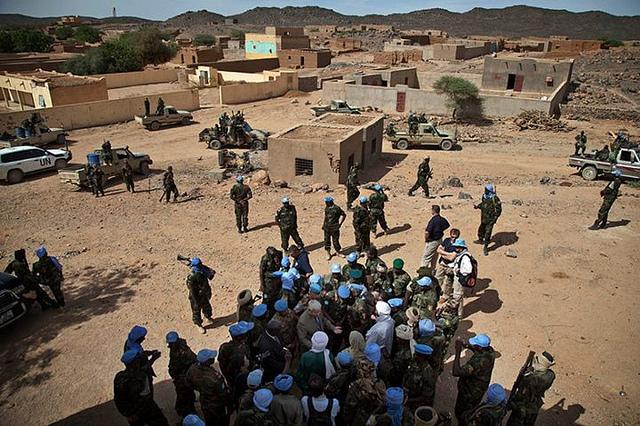Welcome back for this week’s pick of resources, links and news in defence and security.
The Indonesian presidential election is now less than a fortnight away. Over at New Mandala, Yohanes Sulaiman wraps up the main points of the third election debate which focussed on foreign affairs and security issues. Sulaiman explains that the lack of vigour from both Jokowi and Prabowo was to avoid offending the current president whose party support, given the narrowing margin, could prove pivotal to either.
For more on the Australian dimension of the Indonesian presidential debate, check out this analysis by Michael Bachelard and this piece by WSJ’s Ben Otto and Andreas Ismar.
Turning now to the international security issue du jour, if you’re still unclear about the relationship between ISIS and al-Qaeda, Aaron Zelin’s new Washington Institute report looks at the history and evolution of relations between the groups and what that means for global jihadism.
On the South China Sea, CNAS’ Patrick Cronin argues that the US should support Vietnam in countering China’s coercion (PDF). Among the measures, he recommends the joint development of cost-imposing strategies, larger and more frequent bilateral exercises, and for the US to end a ban on lethal arms sales to Vietnam. In a longer piece over at War on The Rocks, Cronin examines whether the US approach of ‘engaging, binding and balancing’ China has been working, and asks, despite is assertiveness, can China be a responsible stakeholder?
‘Beheading the Hydra? Does Killing Terrorist or Insurgent Leaders Work?’ and ‘Towards Cultural Integration in Multinational Peace Operations’ are just some of articles new Defence Studies editor-in-chief, Professor David J. Galbreath, has made available upon assuming his role. For more, see here (h/t Evan Laksmana).
In UAV news, the Royal Navy has just flown the ScanEagle in maritime operations for the first time from the HMS Somerset. Meanwhile, the Task Force on United States Drone Policy, a bipartisan panel which includes a number of former Pentagon and CIA officials, has just concluded that the Obama administration’s use of drones in targeted killings sets a dangerous precedent for other countries. Read the report and its recommendations here (PDF). Lastly, UN peacekeepers in Mali will be getting UAVs to monitor and provide information about the north of the country. UAVs are already being used in PKO in Congo.
On the law enforcement side of the house, stop arming the police like a military, writes criminal justice expert Tom Nolan over at DefenseOne. While this is nothing new, he admits, there are more and more forces rushing to arm themselves with military-grade equipment and using SWAT teams for routine police work, particularly against African Americans and Latinos. In his opinion, the outcome is creeping militarisation of police forces and a warrior mindset which creates the feel of communities as warzones.
Video
Two videos from CSIS this week. The first is a presentation by US Under Secretary of Defense for Intelligence, Michael Vickers, on intelligence and national security. The second is a panel discussion (including Aaron Zelin) on the Syrian conflict and foreign fighters. Both links contain audio files, if you’d prefer to listen.
Natalie Sambhi is an analyst at ASPI and editor of The Strategist. Image courtesy of Flickr user UN Peacekeeping.
